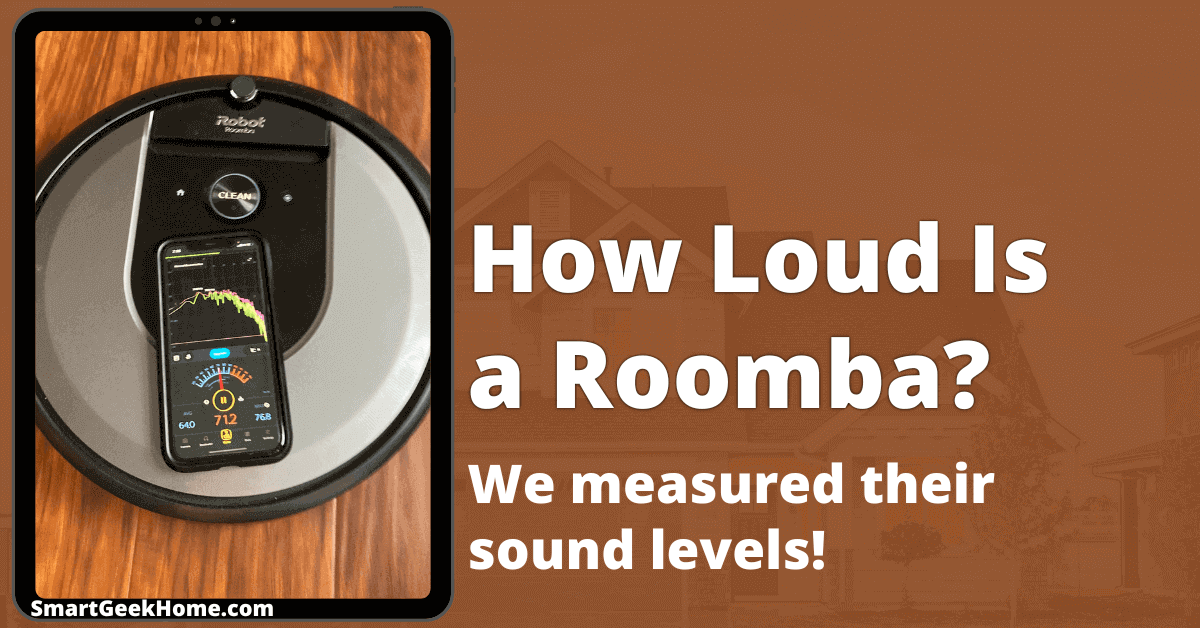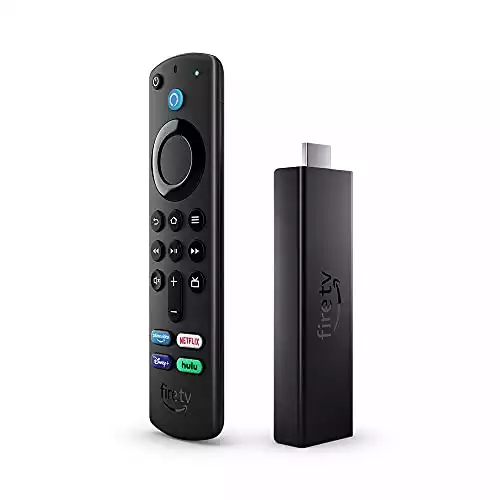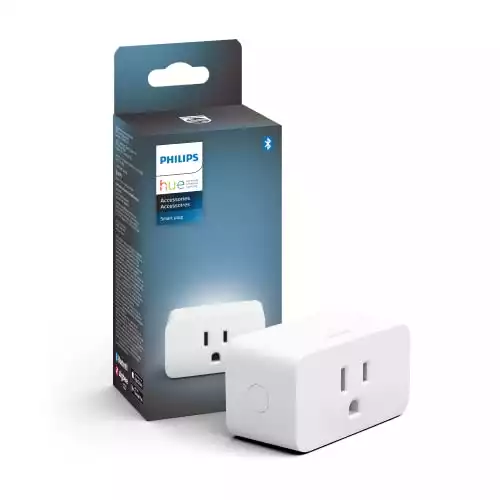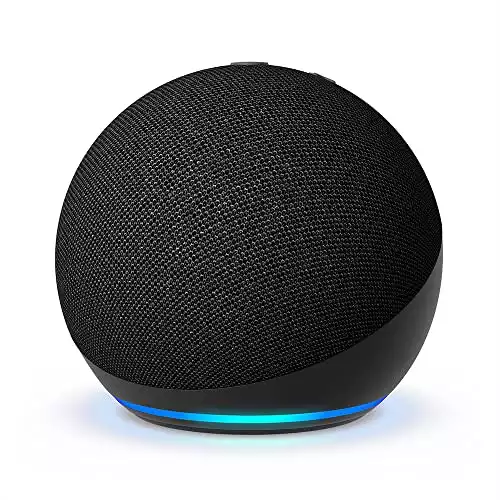This page may contain affiliate links. Please read my disclosure for more info.
Vacuums often top the charts for being noisy. We put Roombas to the test, checking their noise against upright vacuums and everyday sounds. Discover just how loud Roombas are in this piece.
How Loud Is a Roomba in Decibels (dBa)?
Roombas typically operate between 48–76 decibels, similar to a conversation’s volume. Newer models are quieter, often staying under 55 decibels, making them less disruptive during cleaning.
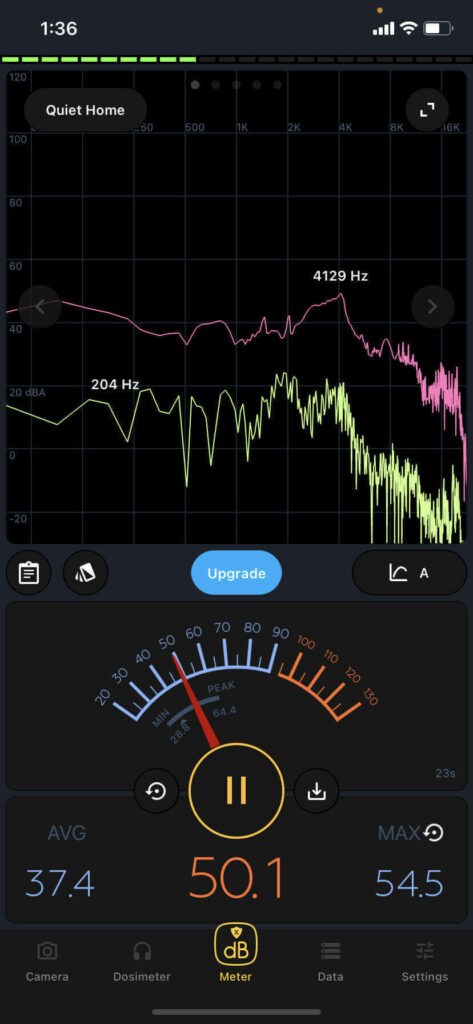
| Model | Noise on hardwood floor (dBa) | Noise on carpet (dBa) | Noise while using self-emptying bin (dBa) |
|---|---|---|---|
| Roomba 600 series | 71 | 67 | – |
| Roomba 700 series | 70 | 66 | – |
| Roomba 800 series | 71 | 66 | – |
| Roomba 900 series | 70 | 67 | – |
| Roomba i4 | 62 | 61 | – |
| Roomba i7+ | 53 | 51 | 74 |
| Roomba j7+ | 55 | 48 | 76 |
| Roomba s9+ | 54 | 50 | 70 |
If your Roomba features a self-emptying bin, expect a louder noise level (70–76 dBa) during its brief 15-second dirt disposal process. Luckily, this louder operation is short-lived.
Explore how everyday sounds stack up against these volumes.
- Whispering: 25 dBa
- Refrigerator: 30–50 dBa
- Normal conversation: 60 dBa
- Washing machine: 70 dBa
- Air Conditioner: 70–80 dBa
- City traffic: 85 dBa
Normal conversations happen at around 60 dBa, making it hard to chat near loud appliances. That’s why many indoor devices are designed to be quieter. But, appliances like dishwashers, washing machines, and vacuums, which don’t run all the time, usually work louder than 60 dBa.
Listening to sounds over 70 dBa for more than a day might harm your hearing. However, vacuums, which run for just 1–2 hours, are usually safe. It would require noise levels around 120 dBa from such short use to pose a risk of lasting hearing damage.
I put the Decibel meter to the test by placing it directly on a Roomba i7 as it moved across a hardwood floor. Surprisingly, even at such close range, the noise level was just 70 dBa.
Is Roomba Louder Than Upright Vacuums?
Explore how common upright vacuums, typically ranging from 70–90 dBa, stack up in noise levels with these examples.
- Shark Apex: 93 dBa
- Shark Rocket HV382: 72 dBa
- Kenmore Elite: 94 dBa
The Shark Rocket, along with similar ultra-quiet upright vacuums, matches the noise level of older Roomba models, yet most uprights still outdo the noisiest Roomba in volume.
The Roomba i7, j7, and s9 models stand out for being 20-40 dBa quieter than typical upright vacuums. Imagine the sound difference between whispering and talking normally – that’s the impact!
These measurements were taken at ear level, right where you’d be when using an upright vacuum. But with a Roomba, you have the freedom to be anywhere else – across the room or not even home – while it cleans.
Can Your Neighbors Hear Your Roomba?
In a thin-walled apartment, your Roomba’s noise might disturb neighbors, especially with hardwood floors and if they live below you.
If your neighbors can pick up the sound of your Roomba, they’ll surely notice a traditional vacuum as well. Generally, Roombas are quieter, except for the occasional bump into furniture or floorboards.
In neighborhoods with noise limits, devices up to 55–60 dBa are usually okay. Modern Roombas typically meet this standard, so they can clean anytime. However, older models might be louder, requiring them to operate when noise rules don’t apply, usually during the day.
Ensure you cross-check our data with your local rules to stay informed and compliant.
Can You Quiet Your Roomba?
Maintaining and cleaning your Roomba regularly prevents it from becoming noisier than its initial sound levels.
Explore essential Roomba maintenance tips I’ve shared, plus a few crucial ones unique to this discussion.
- Clean the Roomba side brush weekly and replace it every nine months.
- Clean the Roomba extractor brushes weekly and replace them every 12–18 months.
- Clean the Roomba filter weekly and replace it every four months.
Pet hair often wraps around Roomba brushes, making the motor work harder. If you own a pet, it’s wise to inspect and clear any tangled hair from your Roomba daily to keep it running smoothly.
How Loud are Other Robot Vacuums?
Robot vacuums typically range from 50–80 dBa in noise. New Roombas lead in quietness, while some older Coredy models impress at 48 dBa.
The Roborock S7 MaxV Ultra stands out as a strong competitor to Roomba, especially with its noise level hitting a comfortable 52–58 dBa on hardwood floors. This puts it right in line with the latest Roomba models, making it a solid choice for those exploring alternatives.
If you’re on a budget but noise is a deal-breaker for you, the Eufy RoboVac 11S Max might just be your best pick. Unlike many budget-friendly robot vacuums that can be quite loud, this one keeps things surprisingly quiet at around 60 dBa, whether it’s cleaning carpet or hardwood floors.
What’s Next?
Considering a Roomba for your home? These smart vacuums offer a seamless cleaning solution, quietly doing the work for you. While they’re pricier than basic vacuums, the cost of a Roomba aligns with other top-tier vacuums, making their convenience a valuable trade-off.
If you own a multi-story house, you don’t need to shadow your Roomba as it cleans. Thanks to its ability to navigate multiple floors and built-in cliff sensors preventing any tumbles down the stairs, it’s worry-free. Plus, with the option to kickstart your Roomba via an app or Alexa’s voice commands, you can ensure it only operates when you’re not there to be disturbed by the noise.
|
N/A
|
$34.99
|
$49.99
|

Zachary has spent 12 hears in the tech industry focusing on automation, analytics, and cybersecurity. His passion is tech education; he uses his industry expertise and STEM PhD to break down complicated concepts into simple step-by-step guides. When he’s not writing or coding, you can find him binging anything Star Trek or Marvel or reading far too many sci-fi novels.
